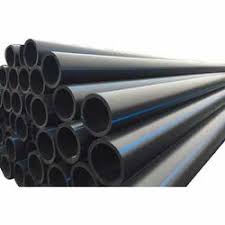Sep . 19, 2024 08:03 Back to list
pvc pipe dimensions products
Understanding PVC Pipe Dimensions and Their Applications
Polyvinyl chloride (PVC) pipes are widely used in various industries due to their durability, chemical resistance, and cost-effectiveness. Whether for plumbing, drainage, or irrigation systems, understanding the dimensions of PVC pipes is crucial for selecting the right type for your project. This article explores the key dimensions of PVC pipes and their applications.
PVC Pipe Dimensions
PVC pipes come in various sizes and dimensions, typically defined by their diameter and wall thickness. The two main types of measurements used for PVC pipes are nominal pipe size (NPS) and schedule numbers, which indicate wall thickness.
1. Nominal Pipe Size (NPS) This is a standard measurement system used to describe the diameter of a pipe. It refers to the approximate inside diameter of the pipe, which helps in identifying suitable fittings and accessories. For example, a pipe labeled as 2 inches NPS does not actually have a 2-inch inside diameter; rather, its actual internal diameter is slightly smaller.
2. Schedule Numbers These numbers indicate the wall thickness of the pipe. The higher the schedule number, the thicker the walls and, consequently, the greater the pressure the pipe can withstand. Common schedule sizes include Schedule 40 and Schedule 80. Schedule 40 pipes are thinner and suitable for low-pressure applications, while Schedule 80 pipes are thicker and often used for higher-pressure situations.
3. Pipe Lengths PVC pipes are typically sold in standard lengths of 10 feet or 20 feet. This makes the transportation and installation of these pipes more convenient, especially in large projects.
Applications of PVC Pipes
pvc pipe dimensions products

PVC pipes are versatile and find applications in numerous fields
- Plumbing Due to their corrosion resistance and low thermal conductivity, PVC pipes are commonly used for potable water, drainage, and sewage systems.
- Irrigation In agricultural applications, PVC pipes are favored for irrigation systems. Their lightweight nature allows for easy installation, and their durability ensures a long lifespan even in harsh environmental conditions.
- Industrial Uses Industries often utilize PVC pipes for transporting chemicals and other materials due to their excellent chemical resistance. They can handle a variety of fluids without degrading.
- Electrical Conduits PVC pipes are also used as conduits for electrical wiring because they provide great insulation properties and protection against moisture.
Conclusion
Choosing the right PVC pipe dimensions is essential to the success of any installation project. Understanding NPS, schedule numbers, and the specific application requirements helps ensure that you select the most appropriate pipe for your needs. As industries continue to evolve, PVC pipes remain a reliable choice due to their versatility, durability, and overall efficiency. Whether you are a contractor, an engineer, or a DIY enthusiast, knowing the dimensions of PVC pipes will guide you in making informed decisions for your plumbing, irrigation, or industrial projects.
-
1/2' PVC Electric Protective Pipe - Durable, Lightweight Conduit
NewsJul.31,2025
-
DN25 PPR Water Pipes for Kitchen - Durable & Leak-Proof Plumbing Solution
NewsJul.30,2025
-
HDPE Sprinkler Pipe Manufacturers – Durable Irrigation Solutions
NewsJul.30,2025
-
High-Quality DN150 HDPE Pipes for Gas Delivery – Durable & Leak-Proof
NewsJul.29,2025
-
140mm PVC Drilling Pipe for Efficient Borehole Drilling Solutions
NewsJul.29,2025
-
High-Quality UPVC Column Pipes for Submersible Pumps – Corrosion Resistant
NewsJul.29,2025

